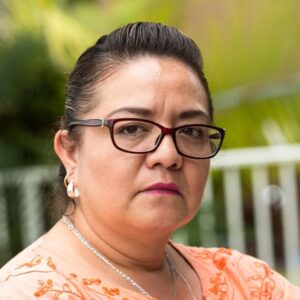Who We Are
About Us
Stad is the Irish word for ‘stop’. STAD – Standing Together Against Direct provision is a coalition of migrant and refugee rights organisations working to defend the rights of migrants and refugees in Ireland.
We are committed to ensuring the State ends direct provision and reforms the international protection process. The eight founding organisations are Amnesty International Ireland, Crosscare Refugee Project, Cultúr, Doras, Immigrant Council of Ireland, Irish Refugee Council, Movement of Asylum Seekers in Ireland (MASI) and Nasc, Migrant and Refugee Rights Centre.
Together we are saying STOP to the system and we’re asking you to join us.
What Are We Calling For?
In 2020, the Day Advisory Group Report (Report of the Advisory Group on the Provision of Support, including Accommodation, to Persons in the International Protection Process) published their report recommending an end to direct provision and other immediate measures taken to improve the international protection process. The Day Report received widespread support both internationally and among the Irish people.
The same year, influenced by the interim recommendations of the Day Advisory Group, the Programme for Government contained a commitment to end direct provision within the lifetime of this government.
In February 2021, the Government published their long-awaited White Paper on Ending Direct Provision setting out their plan for reforming the international protection process and ending direct provision.
STAD was set up in 2022, to holding the government to account on their commitments, including the ending of the Direct Provision system by 2024. The political and social climate in which the STAD coalition was launched, has changed significantly and quickly. The original priorities of the STAD coalition have evolved in light of these changes. As of 2023, we are calling for:
Priority Number 1. Accommodation
1.1 Ending the current system
1.2 Short-term changes
1.3 Prevention of Homelessness
Priority No. 2. Early Legal Advice
Priority No. 3. Independent HIQA Inspections
Priority No. 4. Social Welfare
Priority No. 5. Social Cohesion
The full explanation of these priorities can be downloaded at this link.
Early Legal Advice
In January 2022, the STAD Coalition called for reduced processing times for international protection applications and appeals. In 2022 the International Protection Office (IPO) introduced changes to the application process, however we are concerned that these ‘efficiencies’ are being made at the cost of procedural safeguards. We are concerned that cultural mediation is not a substitute for expert early legal advice.
The Coalition is calling for access to early legal advice for all those applying for International Protection.
In light of plans to digitise the application process, safeguards need to be put in place to ensure that applicants who are not digitally literate are given the support they need to engage with the process. Adequate time should be provided to IP applicants to submit documentation and arrange appointments. It is crucial that IP applicants are not penalised for failure to submit questionnaires immediately on arrival, or before they can access legal advice.
For example, survivors of torture or Domestic, Sexual and Gender Based Violence (DSGBV) may often not disclose their experiences immediately. They will often have to wait months to receive a referral into a service where they can receive appropriate care and the medico-legal report necessary to support their international protection claim.
In addition, newly arriving international protection applicants may find themselves in extremely precarious accommodation, or be required to move frequently, and be completely unprepared to apply for legal aid, or to gather documents which are required as part of their application for international protection.
Independent HIQA Inspections
The Health Information and Quality Authority (HIQA) should be mandated to undertake independent inspections of all Direct Provision and emergency accommodation centres. The issue of independent inspections was highlighted by the STAD Coalition on its inception in 2022. Independent inspections are vital to ensuring that centres are safe and adequately resourced, and that standards are maintained across all accommodation centres.
The Government has since announced plans for HIQA to undertake inspections on all ‘permanent’ International Protection Accommodation Service (IPAS) centres. The STAD Coalition is calling on the Government to extend these plans to include emergency accommodation centres. As of April 2023, over 7,000 people were living in Direct Provision centres, with over 11,000 living in emergency accommodation. It is crucial that those in emergency accommodation are not left behind in the context of safe and standardised accommodation.
Experiences of Direct Provision
 In early 2020 Carolina* fled to Ireland with her five children (aged between 6 and 17). She had become active in local politics in her home country and had spoken out extensively about women’s rights but was forced to leave when she learned that members of the local police force had been complicit in the death threats against her and her children. When she attempted to report a violent assault against her, she learned that she herself was at risk of arrest for her political activities.
In early 2020 Carolina* fled to Ireland with her five children (aged between 6 and 17). She had become active in local politics in her home country and had spoken out extensively about women’s rights but was forced to leave when she learned that members of the local police force had been complicit in the death threats against her and her children. When she attempted to report a violent assault against her, she learned that she herself was at risk of arrest for her political activities.
After making an application for international protection in Ireland, she and her children were told that they would be placed in temporary accommodation outside of Dublin as all the direct provision centres were full. When the family arrived at the emergency centre, all six of them were assigned to one double room. With barely enough room to move between the beds, Carolina was assured that they would be given more space when rooms became available. When the first Covid-19 lockdown hit in March 2020, Carolina was deeply concerned for her family’s safety. The emergency centre she lived in did not have cooking facilities for residents to use; instead the centre had a common dining area with food prepared by centre staff. Carolina worried about the risks of Covid-19 spreading within the centre given that residents shared laundry facilities and dining rooms as well as one small recreational space. The family stayed in their one room for over 20 hours each day as each child attempted to do their schoolwork on a shared mobile phone and tablet. The family remained living in this room for over 9 months, until an application for a transfer to another centre was finally successful.
Meanwhile, Carolina’s application for international protection was delayed as processing applications ground almost to a halt over 2020. By the end of 2021, Carolina was still waiting to be called for an interview for her application – the first step of the process.
* Please note to protect her privacy we have used a different name and photograph.
 Ali* has been living in direct provision for four years. In that time he has been moved to different centres three times and has had thirteen different roommates. He was eighteen when he arrived in Ireland; his education had been interrupted by conflict in his home country and he had hopes of being able to enrol in school in Ireland and go to college. His dream was to become an engineer. When Ali first arrived in Ireland, he felt bewildered and lost. He had been a good English student before but he found the Irish accent hard to understand. He tried to enrol in a local school and was told that as he was over 18, he would not be able to join their Leaving Certificate class. At that time, he was unable to work or study so found his days long and empty.
Ali* has been living in direct provision for four years. In that time he has been moved to different centres three times and has had thirteen different roommates. He was eighteen when he arrived in Ireland; his education had been interrupted by conflict in his home country and he had hopes of being able to enrol in school in Ireland and go to college. His dream was to become an engineer. When Ali first arrived in Ireland, he felt bewildered and lost. He had been a good English student before but he found the Irish accent hard to understand. He tried to enrol in a local school and was told that as he was over 18, he would not be able to join their Leaving Certificate class. At that time, he was unable to work or study so found his days long and empty.
Just over a year later, Ali was moved to a new centre. There he found out about a local programme that would paid for education fees for international protection applicants. His new centre was mostly full of other young single men. Ali made new friends but was frustrated that his new roommates often kept late hours and he struggled to study and sleep in that environment. Despite all the challenges he faced, he was delighted when he finished his school year at the top of his class and was awarded a scholarship to move onto a higher level course. Ali was also able to take up part-time work and felt that, despite the lack of progress in his international protection case, his life was progressing.
In 2020, when Covid-19 social distancing requirements came into place, Ali was notified that as he shared a room with four other roommates, he would be moved into ‘safer’ accommodation with fewer roommates. Ali was given just one week’s notice that he was being transferred to a different county. Ali was distressed as he didn’t know what this would mean for his course or his job. No one was able to tell him whether this move would be temporary or long-term. He also didn’t know anything about the new centre or even the new town he was being moved to.
After Ali’s third move, he felt really isolated. He had been placed in another shared room with two strangers. His new centre had fewer facilities than the previous centre and he didn’t know anyone in the local area. Since his move, he hasn’t been able to find a job similar to the one he left behind and he has struggled to regain motivation to find a new course.
* Please note to protect his privacy we have used a different name and photograph.
 Jennifer Okeke Campbell is the Anti-Trafficking Coordinator with the Immigrant Council of Ireland, as well as a PhD candidate with DCU exploring the experience of migrant women trafficked into Ireland for sexual exploitation. A former resident of direct provision, she shared her thoughts about the Government White Paper and what needs to be done to support particularly vulnerable residents of direct provision such as survivors of human trafficking.
Jennifer Okeke Campbell is the Anti-Trafficking Coordinator with the Immigrant Council of Ireland, as well as a PhD candidate with DCU exploring the experience of migrant women trafficked into Ireland for sexual exploitation. A former resident of direct provision, she shared her thoughts about the Government White Paper and what needs to be done to support particularly vulnerable residents of direct provision such as survivors of human trafficking.
“Last year, the Government’s White Paper outlining the end of direct provision was cause to celebrate. Asylum seeker advocacy groups and civil society had been calling for its end since the system came into being, our voices amplified by both national and international critics reaffirming the practice as inhumane. But we can’t lose sight of the many vulnerable women overlooked by the White Paper. Women who have been to hell and back, trafficked into Ireland and sexually exploited.
“While most people who have gone through direct provision choose to forget their experience, I have not. I remember my 3 years spent in direct provision. Those years defined my first impression of Ireland and my career. I revisit those memories every day in my work at the Immigrant Council helping trafficked women escape exploitation and reclaim their lives.
“Some of these women escape by seeking international protection, only to find themselves in still another traumatic place—direct provision. For years they wait, robbed of independence, in a highly unnatural environment, exposed to further trauma and sexualisation. I’ve seen single mothers pushed to the limit of desperation where they have sold their bodies in order to feed their children. There’s only one word for such a system: Broken.
“Safe, gender-specific housing is an internationally-agreed standard of care for helping trafficked women recover. But the vast majority of such women languish for considerable time in direct provision–an environment wholly unsuitable for them. The toll on their mental health and spirit cannot be overstated.
“I met a woman in direct provision, a beautiful lady with a brilliant smile and spirit. She had escaped the atrocities of the Mugabe tyranny in Zimbabwe and sought refuge in Ireland. 8 months in direct provision and her mental health was in ruins. After tyranny and a dictatorship, it was direct provision that finally broke her.
“The White Paper does not go far enough to meet the needs of trafficked women. It fails to detail the known pathways to helping these vulnerable women with their most important need today: Gender-specific accommodation. These victims can’t wait for long consultations and roadmaps. They are a small cohort of women who could be supported through an expanded and resourced, women-specific safe system of accommodation. Where there’s a will, there’s a way. Where is the will?
“I often think of these women. And I think of those not lucky enough to seek international protection. The EU migrants trafficked into Ireland but unable to escape the horrors of exploitation.
“And I think of the beautiful lady from Zimbabwe. Years later, I ran into her on O’Connell Street. She had aged overnight. She was still lost, still broken.
“Broken, like a system that should never have existed in the first place.”
 Owodunni came to Ireland in 2014 from Nigeria. A mum of 3, she left her country wanting to give her children a safe, healthy space to grow up in.
Owodunni came to Ireland in 2014 from Nigeria. A mum of 3, she left her country wanting to give her children a safe, healthy space to grow up in.
8 years after arriving here, Owodunni and her 3 children are still waiting for their international protection applications to be approved. The family lives in direct provision, in a small town in Co. Mayo.
Despite this experience not being what she had envisaged, Owodunni still speaks highly of life in Ireland:
“Life in Ireland has been awesome. I have had countless opportunities that I would not have been able to avail of back home. I love the people, I love the ambience.”
Owodunni has been busy the last few years while waiting for residency, founding the Ballyhaunis Inclusion Project as a support group for asylum seekers and people from ethnic minority background.
Her work led to her being honoured with the Christine Buckley volunteer of the year award in 2019, and then again in 2020 for the volunteer of the year award in the small groups’ category.
When she’s not volunteering, she’s studying and working:
“I am currently studying for a second degree in Business Enterprise and Community Development, also rounding up a master’s degree in Gender, Globalization and Rights at NUIGalway and I work as a care worker.”
For Owodunni, her experience in direct provision, the international protection system and living in rural Co. Mayo has helped shape the kind of change she would like to someday bring about by becoming involved in politics:
“As an asylum seeker, I often refer to people like myself as being at the bottom of the ladder due to the barriers we are faced with. From the endless wait for residency, to access to labour market that limits us to certain sector and barriers in accessing education, my experience would be different from those who have permission to live and work in Ireland.
“For those in the rural areas, there is limited job access, they have to choose between paying huge rent and getting a good job in the city or move to the rural areas and take up precarious jobs.”
She also cites racism and educational discrimination as massive barriers facing migrants in Ireland today, as well as the limited access afforded to migrant professionals to progress their careers, especially in the healthcare sector.
What does she want to do about it? Run for politics and bring about the needed change:
“As a public office holder the duty is to serve the people. If I get elected, I will first harness the skills of migrants that is currently being underutilised.
“I will ensure that distribution of resources and access to services takes the bottom-up approach.
“Rural areas have been left out in terms of development. I will ensure that rural development is prioritised, concentration of opportunities in the cities has done more harm to the rural areas than good.
“I would like to see more women in the workforce, to ensure this, a public approach to childcare services needs to be put in place, I will advocate for that.”
Learn More about Direct Provision
Ireland’s reception system for asylum seekers is known as direct provision. People applying for international protection are housed across the country in communal institutional centres or former hotel-style settings. The vast majority of the centres are managed on a for-profit basis by private contractors.
Direct provision is intended to provide for the basic needs of people who are awaiting decisions on their applications for international protection. The system was designed as a short-term measure in the year 2000, but many applicants experience lengthy stays and living conditions which have received widespread criticism as contributing to the declining physical and mental health of residents, as well as being detrimental to residents’ self-esteem and dignity.
The member organisations of STAD have been advocating for change to the direct provision system for over 20 years, holding that the current institutional system creates barriers to integration, contributes to poor mental and physical health and leads to social exclusion.
In 2020, the Catherine Day Advisory Group Report (Report of the Advisory Group on the Provision of Support, including Accommodation, to Persons in the International Protection Process) published their report recommending an end to direct provision and other immediate measures taken to improve the international protection process.
The Day Report received widespread support both internationally and among the Irish people. The same year, influenced by the interim recommendations of the Day Advisory Group, the Programme for Government contained a commitment to end direct provision within the lifetime of this government.
In February 2021, the Government published their long-awaited White Paper on Ending Direct Provision setting out their plan for reforming the current international protection process which includes and ending the current system of direct provision which has received widespread condemnation not only domestically, but from international bodies including the Council of Europe.
Learn More about Direct Provision
Ireland’s reception system for asylum seekers is known as direct provision. People applying for international protection are housed across the country in communal institutional centres or former hotel-style settings. The vast majority of the centres are managed on a for-profit basis by private contractors.
Direct provision is intended to provide for the basic needs of people who are awaiting decisions on their applications for international protection. The system was designed as a short-term measure in the year 2000, but many applicants experience lengthy stays and living conditions which have received widespread criticism as contributing to the declining physical and mental health of residents, as well as being detrimental to residents’ self-esteem and dignity.
The member organisations of STAD have been advocating for change to the direct provision system for over 20 years, holding that the current institutional system creates barriers to integration, contributes to poor mental and physical health and leads to social exclusion.
In 2020, the Catherine Day Advisory Group Report (Report of the Advisory Group on the Provision of Support, including Accommodation, to Persons in the International Protection Process) published their report recommending an end to direct provision and other immediate measures taken to improve the international protection process.
The Day Report received widespread support both internationally and among the Irish people. The same year, influenced by the interim recommendations of the Day Advisory Group, the Programme for Government contained a commitment to end direct provision within the lifetime of this government.
In February 2021, the Government published their long-awaited White Paper on Ending Direct Provision setting out their plan for reforming the current international protection process which includes and ending the current system of direct provision which has received widespread condemnation not only domestically, but from international bodies including the Council of Europe.
The political and social climate has changed significantly since the 2021 White Paper, and since STAD’s establishment in 2022.

